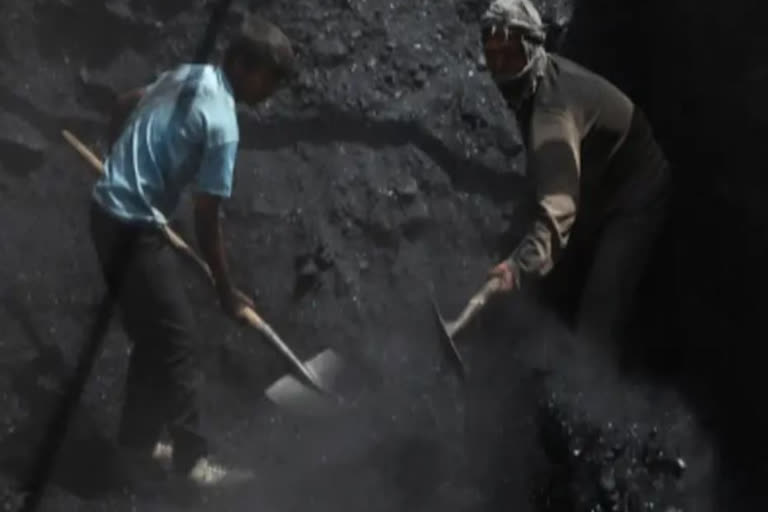New Delhi: Amid an ongoing coal shortage in India, a white paper prepared by the All India Power Engineers Federation (AIPEF) has revealed that the present coal shortage is the combined result of a number of policy errors by the central government. "It is established that the present coal shortage is the combined result of a number of policy errors of the Central Government with shortage made worse due to shortage of railway wagons," the white paper stated. AIPEF is a representative body of all the power engineers working in power utilities under the central and state government.
Speaking to ETV Bharat, AIPEF chairman Shailendra Dubey said that the decision of the government of India to take away the accumulated revenues of Rs 35,000 crore of Coal India Limited (CIL) in 2016 crippled the developmeng of new mines and increasing capacity of existing mines. "Had this surplus been ploughed back into the coal mine sector, the present shortage would not have occurred," said Dubey.
Dubey further said that keeping the post of CIL's CMD vacant for a year after the term of the incumbent ended "showed that government was itself responsible for coal shortage." "The additional charges on account of imported coal are payable by the central government and must not be loaded on States, as the policy error were of the central government," said Dubey.
Highlighting that the Government order dated April 28 put the financial load of coal import on the States, Dubey said that the order must be withdrawn "as the States can not be penalised for policy lapses of the Government of India." In its April directives, the Power Ministry has asked all the State power generating companies (Genos) to import 10 percent of imported coal to meet out the shortage of domestic coal.
Dubey said that if States are forced to import coal then the Government of India must bear the additional burden of importing coal "so that already financially distressed Discom (power distribution companies) and ultimately common consumers are not over burdened." The AIFEF has also appealed to all Chief Ministers to take up the issue with the Central Government.
Dubey said that since most of the thermal stations envisaged, designed, and constructed over the past decades on the basis of domestic coal from linked mines, there was no arrangements for blending of domestic with imported coal. "The risk of temperature variations in boilers due to uneven mixing would increase incidents of boiler tube leakage," Dubey said.
He said that the State owned thermal stations are planned and constructed only after obtaining the clearance of railways to move the coal from the linked mines up to the thermal station. "At this stage of would be unfair to burden the States for the high cost of import of coal when wagon shortage was one factor responsible for prevailing coal shortage," Dubey said.
It was found that while the requirement of wagons for movement of coal is 441 rakes per day, the availability and placement of only 405 rakes per day. "During the period 2017-18 to 2021-22 the order placed by railways for wagons was averaging 10,400 wagons per year. As against this, for the same period there was a pendency of upto 23592 wagons per year for which the order have been placed but the wagons bot supplied," Dubey said.
Also read:Power crisis: States asked to increase coal output from captive mines, fix RCR issue



